However…
World Agriculture and Anti-Trust Organizations Should Be Established
A Serious Showdown at Davos 2022
The World Economic Forum (WEF) is an international foundation headquartered in Geneva, Switzerland. This Forum meeting has been held in Davos, Switzerland, every year since 1971. The forum’s original purpose was to provide a platform for resolving international conflicts and broadening vision. Political leaders were first invited to the forum in 1974. I have been saying for many years, “Let me join, let’s go now, this year is the time” then either something came up, I didn’t feel like it or it coincided with another trip and I did not have the chance to attend the Davos meeting. This year, everything was suitable and I attended Davos 2022 with Mr. Ali Ülker. I wanted to share an overall assessment of Davos and a summary of the panels I attended based on the notes I took. It is said, ‘Let what you eat and drink be yours; tell us what you saw.”, so I’ll tell you what I have heard and, in doing so, try to be helpful to you once again. Here’s something to read…
World Agriculture and Anti-Trust Organizations Should Be Established
Davos is still alive!
The vast majority of the panelists had studied their lessons well. Besides, everyone is aware of what needs to be done but there are still many deficiencies in how to do it and there are those who openly accept this.
There is a serious reckoning with globalization, the errors of globalization cannot be analyzed and the majority does not want to give up on globalization.
The World Economic Forum (WEF) is an international foundation headquartered in Geneva, Switzerland. This Forum meeting has been held in Davos, Switzerland, every year since 1971. The forum’s founder is Klaus Schwab, a professor of business administration at the University of Geneva. First, it was called the European Management Forum; then, in 1987, it took its current name.
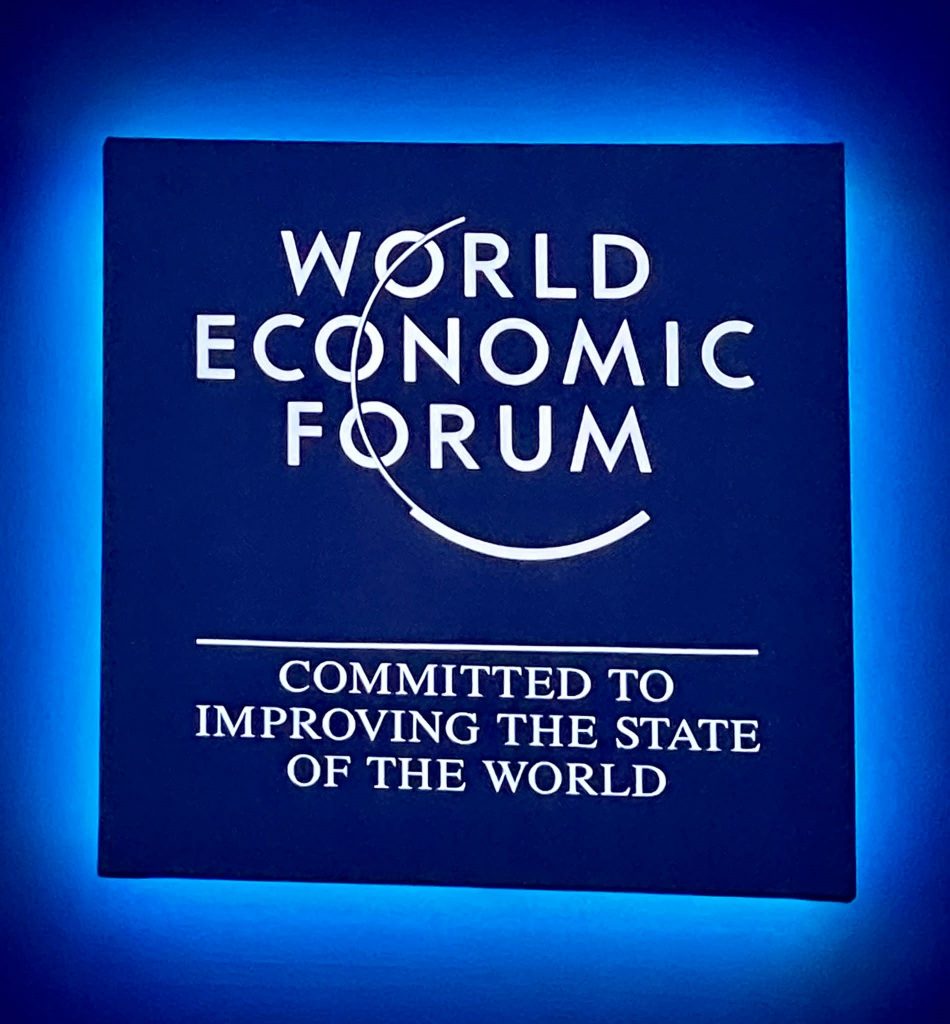
Four hundred forty-four executives from Western European companies were invited to the First European Management Symposium. Later, the World Economic Forum became a nonprofit foundation, attracting European business leaders to Davos for annual meetings. Political leaders were first invited to the forum in 1974, while the forum’s purpose was to provide a platform to resolve international conflicts and broaden vision. The forum has since been used as a neutral platform by political leaders. There are many rumors about Davos, from business people forming an Illuminati-style organization to continue the capitalist system to the epidemic being planned in Davos to reduce the world’s population… All kinds of gossip are abundant for those who want to believe such and the number of unbelievable rumors in the social network society has increased.
For many years, I have been saying, “Let me join or let’s go now, this year is the year,” yet something else always came up and the opportunity to attend the Davos meeting never arose. But everything was suitable this year and we made it. We attended Davos 2022 together with Mr. Ali Ülker. More than seventy to eighty sessions were going on simultaneously. Therefore, it was necessary to be selective. Some sessions were attended by Ali Bey while I attended others and some we both attended together. Frankly, on the first day, I silently asked myself, “I wonder if Davos is outdated in the online and digital world?’ But when I listened to a dozen panels, more than forty panelists over three days while attending socializing dinners and meetings in between, I answered, “No, Davos is still alive!”
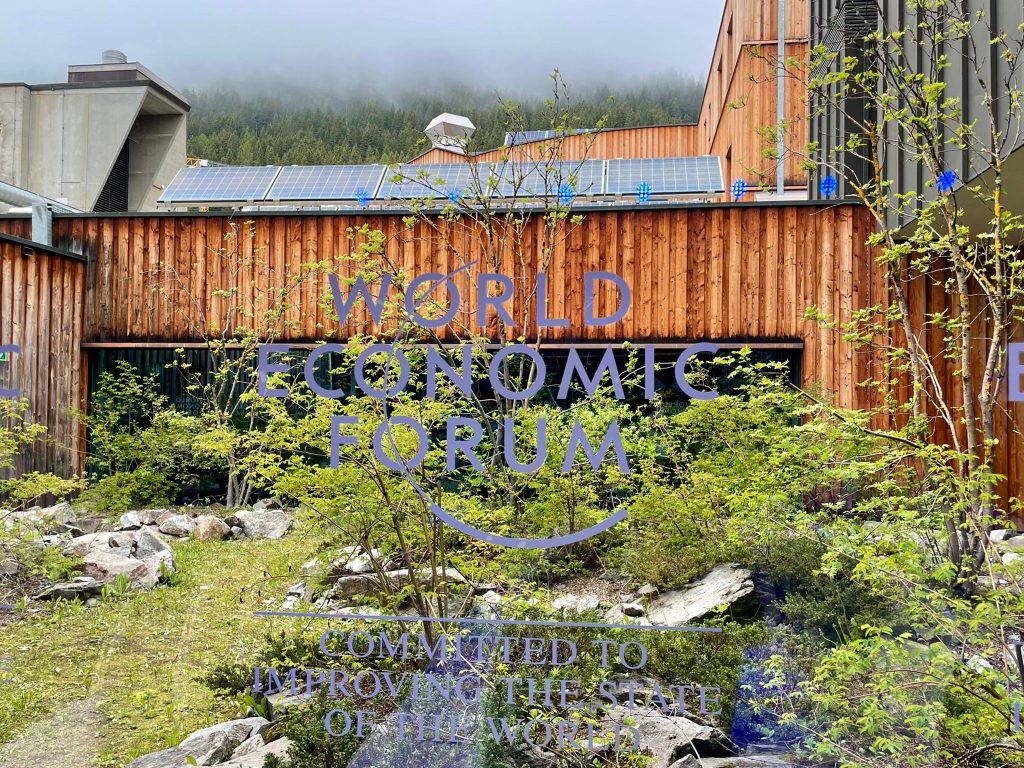
Let me write one of my favorite parts first. It was a dinner meeting entitled ” The Economics of the Next Decade.” Andres Velasco, Dean of the Faculty of Public Policies at the London School of Economics and Political Science University, presented at the meeting. A speaker was seated at each table; each speaker was from a different nationality. Velasco made sure that the meeting was very productive and friendly by calling upon every one of them to speak and asking them questions. The eight people at the table I chose were from eight different nationalities. Here are my notes from this meeting:
The Economy of the Next Decade
Governments inevitably have to make wise and swift choices. After all, we were not successful in the epidemic. Six million people died worldwide and many more had to grapple with the consequences of the disease. There were also intense fears, anxieties and desperation. IMF remedies suggest “raising rates” but things will go wrong if the supply chain doesn’t improve. If the Russia-Ukraine war continues, there will be global inflation and a crisis in which developing countries will suffer. Now, everything is happening very quickly and at an enormous volume. It is necessary to be prudent and practice “reverse thinking.” Of course, current developments hinder trade, investment decreases and the possibility of a recession appears. China grew 10% for ten years, then 7%, then 5% and then growth fell to 2%, so will China plunge into a crisis? Despite being authoritarian, China’s success is due to its lack of statist manipulations in the economy. It gives importance to individual initiatives. However, with Covid, statist practices came to the fore in China; if they switch to statist approaches in the economy instead of the free market, there will be a crisis. Of course, in this process, China clashed with itself. Chinese elites are skeptical of statist practices. It is the first time. A one-person regime naturally brings prejudice. This is the case all over the world and Putin’s approach is no different.
It was interesting what Professor Stiglitz said at the dinner. He said our figures are based on inaccurate numbers. He gave an example as follows: “In the United States, 60% of people live in their own home but there are house rents in subsistence figures”. For this reason, he warned that if there is a big difference in such figures between economies, take it into account; otherwise, do not look. He asked why rising interest rates would affect the supply chain? We need to invest in the supply chain but how will investments be made if we raise interest rates? Why are we raising US children in poverty? Because not everyone pays for themselves. I fear of recession, not inflation. There should be proper taxation, multinational companies should be taxed and environmental taxation should be made.”
Some notes of other speakers: Social economies, green transformation and green investment are essential. The greenhouse gas effect in 54 countries in Africa is 4%, jobs and employment should increase in these countries. They will need additional energy in the next 20 years. Here the numbers are not the same and the problems are not the same. Developed countries said in 2009 that they would help Africa with 100 billion dollars. They’ve given $1 billion to date. Africa says we don’t trust you. Europeans had a surplus of vaccines and they couldn’t send them to Africa so they went to the garbage. Action is required multi-directionally and at every level. Where will low-income countries find resources? Will the IMF give, what will the geopolitical problems be?”
Below, I will summarize the other panels I have attended based on my notes. Yes, there were many sessions, many topics and many panelists but the keywords used were very similar to each other. The vast majority of the panelists had studied their lessons well. Besides, everyone was aware of what needed to be done but there is still a significant lack of knowing how to do it and there are those who openly accept this. Most panelists said they were hopeful about the future but failed to adequately state the basis for that hope; maybe there wasn’t enough time. It is evident that the crises experiences have also differentiated the mentality of developed and developing countries. A serious reckoning has begun with globalization but a complete analysis of the mistakes of globalization cannot be made; the majority do not want to give up on globalization. Everyone is aware that there must be a transformation and they also know that this transformation will be painful. Yet, the problems are not swept under the rug, it is heartwarming; but the leaders seem to realize that there will be a lot of dust in cleaning up these problems. It will be seen that whichever countries’ representatives cough more in Davos next year, they are more affected by the rising dust. Let me add that, with some issues that need to be corrected; I am in favor of globalization.
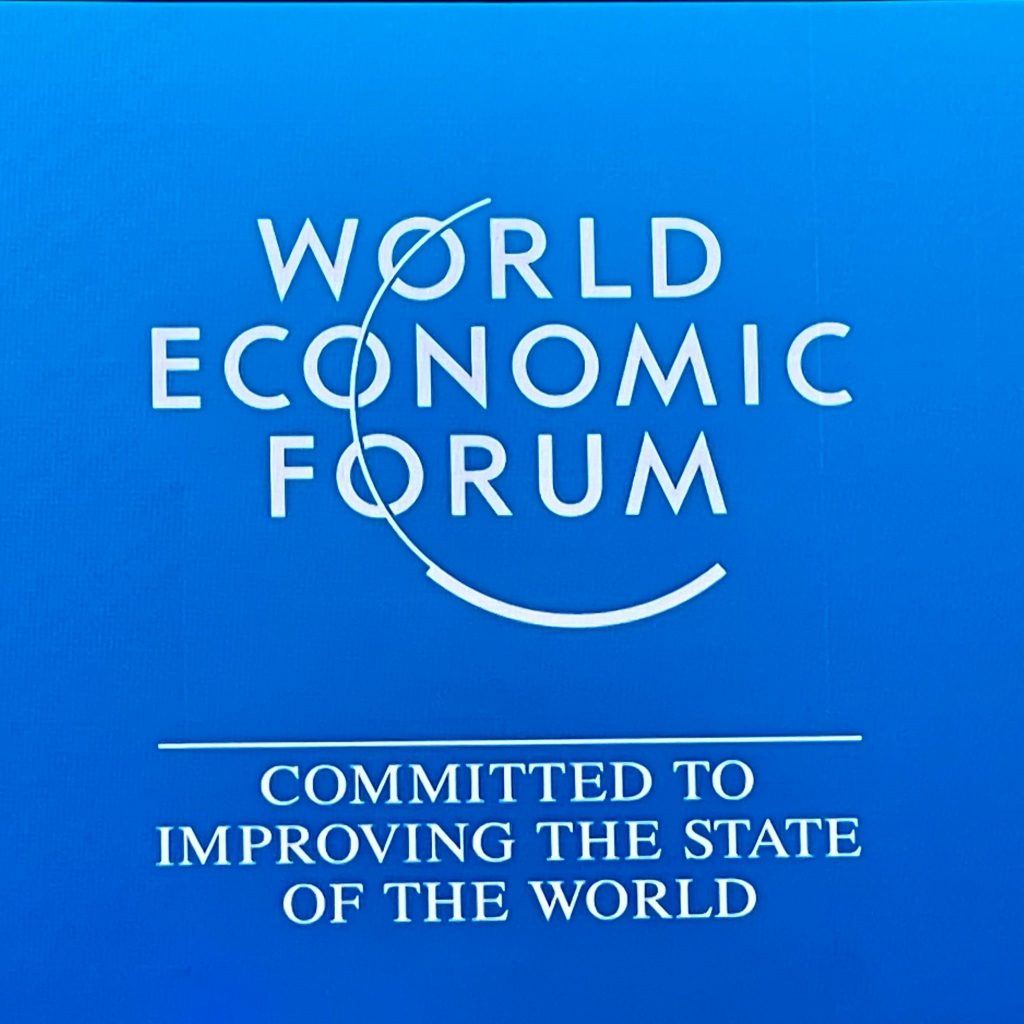
Here are some of the notes I took from the sessions I attended and my views on them:
The Future of Globalization
Economics, technology and demographics are positive forces that support globalization. Globalization reduces poverty. 50% of investors in Hong Kong are from different countries. It is crucial to create an ecosystem where the West and East unite and clearly define the tasks. Globalization will increase as the use of biofuels and hydrogen increases because these new types of energy are messing things up. Currently, logistics prices are rising; this is a problem area of globalization because it is a difficult period for small and medium scaled enterprises. We will see how a solution is produced. What is happening today is a “transformation” process, not a comeback from globalization.
The participation of developing countries brings great labor potential to the markets. In Southeast Asia and Africa, government-driven innovations are not helping anyone; on the contrary they waste resources. We must pull governments out of innovation leadership. P&G Europe President Loic Tassel said: “We are reaching 5 billion consumers. This is one of the advantages of globalization. All consumers want the same quality at a low cost. All consumers deserve better products and sustainable solutions. For this, as business leaders, we have to train, communicate and provide incentives to realize economies of scale”. There will be localization, not globalization, in the supply chain and it is essential to have production where there is consumption. Call centers, software developers, e-commerce and services will get their share from localization.
Preventing the Global Food Crisis
Food security and supply need to be transformed in an inclusive, long-term and sustainable structure. This requires investment in smart farming systems. One-third of agricultural product in Africa is wasted. This brings a huge burden for both the farmer and the state. To prevent this, all the countries of the world must work together.
There are certain foods which must be obtained from certain parts of the world. For example, bananas are grown in certain climatic regions of the world and sent to other areas by creating a supply chain. A shipping company picks it up and takes it to other parts of the world. In products other than this, for example, pineapple and coconut, the global consumer is analyzed in the same way thinking how he would buy it and a reverse supply chain is established and if large companies are created for this, there will be a solution. Today, this is not done; such actions that will benefit the whole world are sacrificed to lobbies. For this reason, there should be a World Agriculture Organization, like the World Health Organization, that will make effective policies globally and world agricultural resources should be used with wise policies, starting from demand, in a way that will benefit all humanity. Global agricultural organizations that exist today are trying to solve problems starting with the supply.
Economic Outlook of the Middle East and North Africa
The first shock in this session was to realize that the region called MENA, which we perceive as a country with the same characteristics, is a mosaic and includes different regions. There are the rich and the poor; there are those who have ethnic problems; there are nationalists; some export food and some import them. There is inflation in Egypt, wealth in Saudi… You see, trying to unite the region under the name MENA and manage it like a single country is completely nonsense. So what is the problem in the Middle East and North Africa? Why are these countries not developing rapidly? There is a problem in understanding…
There is absolutism, there is nationalism, there is no logic of free enterprise and there is no established democracy. They lower and subsidize electricity bills for the convenience of the people but they do not motivate people to be entrepreneurs. The Saudis are pegging a barrel of oil at 70 US dollars. This is a good thing but what will be produced and how will the saved money be invested, no idea! However, if everyone produces for their own benefit, then income increases and welfare increases. In these countries, you cannot start an initiative without public permission. Turkey is about to come to this point; I think Turkey will be locked up if we continue like this. There is a similar situation in Europe. They raise the thresholds to prevent new capital inflows, make the legislation harder and say not to come.
Those in Mena want to invest in the service and digital sectors. If you do not have a production backbone in your economy, what service do you provide to whom, although you do not produce? It is impossible to develop unless you first produce something with added value. Okay, you are investing in tourism; it used to be called a chimney-less industry; if you don’t produce anything, what will you sell to the visitors? Governments establish state development funds with the people’s money, doing large projects. The result is inefficiency and frustration because there is nothing behind encouraging the will to free enterprise. That’s why it’s disappointing. However, if they distribute this money directly to the nation and “teach them how to fish” they would benefit much more.
If these are realized, it is possible for the region to reach its full potential. Economic reform is a must in this region, they create new business areas but it is not enough. The procedures should be simplified quickly for investors, strategic projects should be accelerated and the whole world will benefit more from this region if priority sectors are focused.
The Future of Democracy
The growing gap between the East and the West poses a threat to the future of democracy and underdeveloped/developing countries need to be supported in order to achieve a genuinely democratic society. At the same time, emerging social networks are influential in shaping/manipulating people’s opinions, leading to populism. Thanks to the social network, everyone lives in their own aquarium; people live in a structure that thinks more rigidly, does not give up on these thoughts and creates ghettos around these thoughts. When something is a trend topic on Twitter, it is considered the truth. In the past, it was said that “the people in the west use cannabis and heroin, they will be destroyed in 5-10 years” what happened next… They were already living like that; they came to the point of liberation. Now we say, “We will take the technology of the West but not take away its immorality.” But virtual social ghettos are global now; you are how you live.
The fact that most people living now are not acquainted with “true democracy” weakens the existing belief in the future and reduces democracy to a more fragile point. The keywords used to solve these problems were described as “inclusiveness” and “people and value orientation.” It was also said that the Ukraine-Russia war is a war of democracy and freedom and must be won. However, I look at it from another perspective; if the level of development does not bring countries to a certain level of development, that will make them “compassionate”, an “undemocratic, uncontrolled power” can drag countries into war.
Re-imagining the Global Tax System
Establishing a more equitable and inclusive taxation system is undoubtedly necessary for sustainable growth and development. This new system is not an attempt to help but is thought to be primarily about justice. Of course, the issue of justice is also a topic that needs to be examined here. “Who wins, who loses? And how fair is this transformation?” These are the questions that should definitely be spent time on.
The main issue is not to collect “more” taxes but to collect taxes “through an improved system.” It’s not more taxing; it’s taxing usefully. It’s not a job to collect taxes from the rich. Taxes should be everybody’s problem and everybody should be worried. Why do we need a global tax understanding? Money cannot be used when it goes somewhere. However, money needs to be transparent. In Africa, we say that that there is not enough tax collection in this country. However, there is a transfer of wealth here; money flees to other countries. It does not support the local financial system and cannot turn into production. If there was a minimum global tax, if there was a general consensus… Overtaxing the rich seems reasonable to the “citizen” mind but if you think in terms of economic development, it is necessary to encourage them to spend their money and invest. Then there is an added value. In societies that are not fully digitalized and unrecorded, the solution that benefits everyone is to switch to a per capita tax system according to socio-economic status. At the source and so on, taxes stay where they are collected.
Relieving Commodity Shock
We have all the factors for a devastating storm, looking at the situation today. Today’s commodity crisis is extraordinarily complex and the era of cheap commodities is over. However, every crisis has the potential to be evaluated as an opportunity. But today, we have a huge problem sustaining the world supply. Panelists from developed countries state that fragmentation will bring problems in the long run; panelists from developing countries think this separation will benefit.
And in this session, it is clear that free trade is being hindered, especially food trade. However, this blocking is very dangerous. Everyone should produce everything and there should be diversity. The rising prices are not that much of a problem. Thus, prices are equalized all over the world. For example, paper and packaging prices have increased by 400% in our country but they have become equal to the world. Ship freights first rose and then fell but the carriers wanted to maintain that level.
In fact, there is an oligopolistic structure in the world commodity markets. The markets for every commodity (oil, paper, gas, mine, etc.) are oligopolistic markets dominated by a few companies known as the “seven sisters.” They come together and control the market with a common mind. For example, suppose several factories go into maintenance simultaneously. In that case, if the demand in that sector has decreased, the price will not fall or rather, it will not be allowed to decrease since the supply will also decrease.
How can such a thing happen? Because countries have their own anti-trust laws or the European Union has anti-trust laws, but globally, there is no anti-trust law that controls companies. Only if everyone produces everything, these structures will be broken. Middle-income countries should make value-added commodity analyses and enter these markets to break the oligopolistic systems.
Opportunity comes out of a crisis. Look at the coronavirus crisis; what innovative products came out of urgency. Both investment and technology transfer is required to take advantage of the opportunities. For example, there is a tremendous amount of waste in electronics, it cannot be recycled but nothing can be done.
It is necessary first to define the crisis very well in a global crisis. The fluctuation of prices is not a crisis. The real problem begins if the price goes up and the item cannot be found. For example, if food is not available, it will be a very serious problem because food is human life.
Preparing for the Next Pandemic
“Private sector involvement is incredibly important to combating disease.” This was the consensus of the panel. Bill Gates emphasized that early detection of epidemics is one of the essential parts of the job. Zone 0 of the epidemic is the most challenging; what is more worrying is that many of the pandemic risks we expect around the world are in countries that do not have the resources to deal with it in the first place. There is a need for a “global capacity” that can intervene and accelerate the process to overcome this problem. We have seen the effects of the pandemic together as two sides of the coin, human and economic costs. So now we need to understand that we need to help everyone in an inclusive structure. Otherwise, these and similar problems will continue to occur. We should also know that the precautions like regional quarantine is ineffective.
The rule is this: You will protect yourself from everyone and protect everyone from yourself. This is a personal matter and new epidemics can only be prevented in this way.
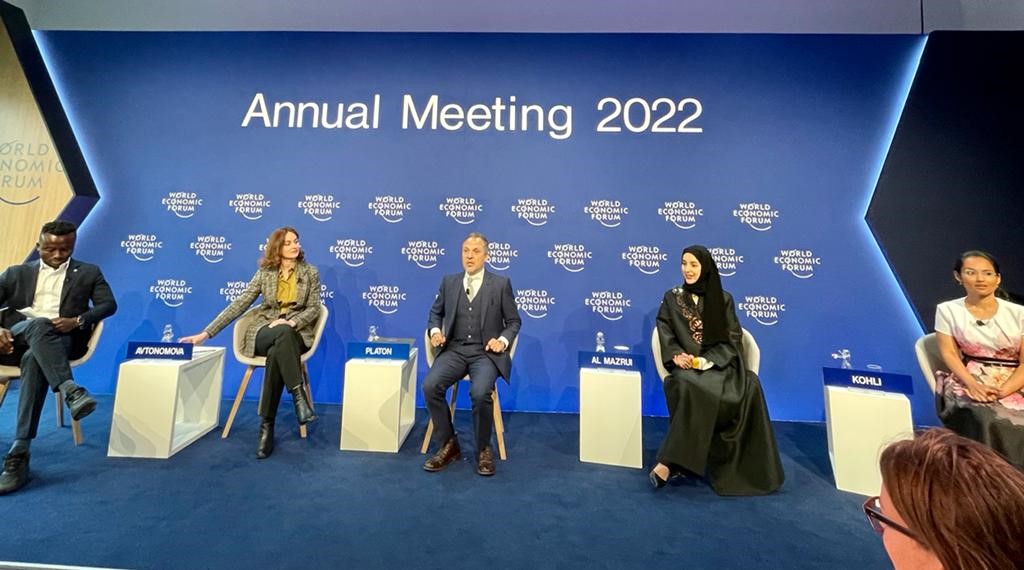
Millennials Take Over
It was an exciting session attended by millennials. A portrait photographer was presenting the panel. His goal was to shake everyone up and encourage them to rethink. He asked the participants the meaning of different words. Fear and hope, whether to be included or to belong… Uliana Avtonomova from Ukraine was a good example of how the answers to the questions were affected by the events; It was interesting that for hope, “people, including leaders, acting together and with love” for fear, she said, “Russia taking over Ukraine.”
The millennial generation has taken over the business with us or is about to do it. For example, my eldest son Yahya is one of them. They experienced 9/11, experienced the global crisis, experienced the pandemic and now they are experiencing inflation. But they’re never pessimistic; they say “it’ll be okay” when you ask.
They are willing to leave everything behind in order to feel safe. Instead of working all the time like us, their preferences are “stop, take a break.” They are looking for a mentor (director). They do not want to be alone, but they are trying to create power from there if they are left alone. They like to have a daily routine. For example, it could be prayer. There is a saying from Karl Schwab: “Failure is not keeping your promise to yourself!” The new generation seems to have adopted this saying. They asked the Ghanaian youth who attended the session: How did you get chosen here? His answer was again interesting: “For failing enough! I came”. In other words, millennials know that it is crucial to understand their mistakes and try to fix them to be strong. They think that it is a strength to react to mistakes? They emphasize that it is necessary to be resistant, not weak and that it is very important to know oneself for this.
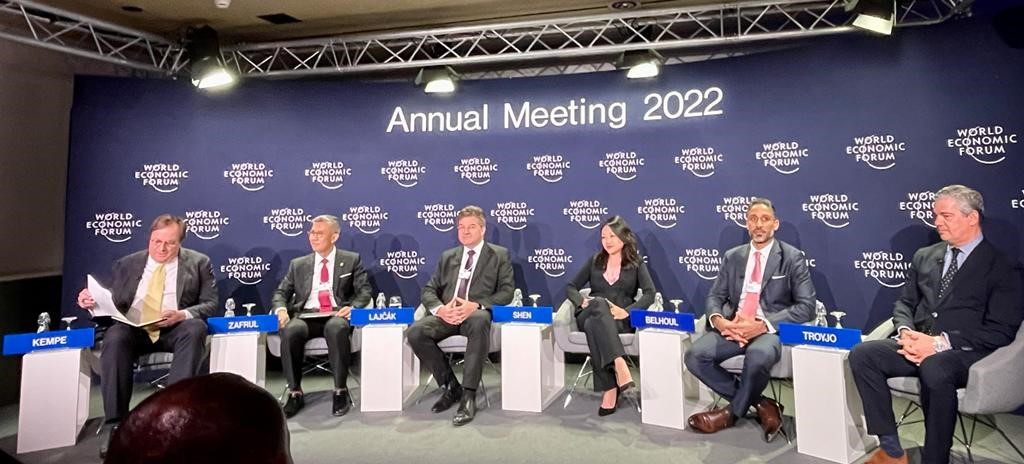
Looking long-term
In other sessions, the war was mentioned as the “Russia-Ukraine War.” In this session, the war was labeled as “Putin’s War.” There was an emphasis that we should establish a structure that does not miss today and yesterday while looking away. Frederick Kempe, President of the Atlantic Council, made this emphasis. Kempe also emphasized that governments should eliminate bureaucracy and be capable and competent.
There have been many crises in the world so far. In 2019 there was a financial crisis in the European Union, then the election of Trump as the President of the USA, then Brexit, then the Covid epidemic and now the Russia-Ukraine war. Neither the world community nor the European society was ready for these crises. This is because nobody thinks out of the box. The European Union is unclear; it does not say what it wants to do. Moldavia, Georgia; Ukraine wished to become a member of the European Union, but they did not give a clear answer to any application. The European Union is not actionist. It is necessary to place the idea of long-term thinking and policy, even when choosing people for the job.
In the same session, businessperson Lily Shen said, “You have to think long-term but everyone thinks about themselves. However, the name of the supply chain should be the chain of cooperation. For this, we established a foundation called Future Foundation. It is very important to learn how to adapt and implement global strategies.” Indeed, the supply chain or the value-added chain is changing. As a result, governments need to take quick action and the academic world needs to shape the thinking. Great collaboration is needed now; otherwise, everyone will live in their own silos. The future requires joining forces and releasing multiple energies.
In summary, flexibility, agility, readiness, accountability, inclusivity and responsibility were the keywords of the session. It was emphasized that solutions should include multi-stakeholder implications and be inclusive and it is vital for the growth of the economy that decision-makers can adapt to changing conditions. While it was stated in other sessions that the private sector – state duo should work in a coordinated manner, it was mentioned in this session that it is critical for academia, government and the private sector to work together. Because many unknowns mean a lot of variables, it was said that it is essential to have different perspectives.
Rethinking Overcoming Global Poverty
Representatives of developing countries believe in the potential of their people. They say, “if you provide us with the necessary tools, we can do what is necessary.” At this point, it is important to take the advice of the local people in terms of opportunities. Inclusivity and innovation were on the agenda of the session. It was said that it is necessary to focus on children’s right to education for inclusiveness. For innovations and investments to achieve a sustainable success, there must be a digital infrastructure that can record citizens’ data. It is vital that all practices to be implemented to end poverty do not hinder “growth.”
Bangladesh is an excellent example of overcoming poverty. This country was impoverished. Bangladesh was a part of East Pakistan. In the early 1970s, they became separate countries. Klaus Schwab’s another saying: The age is not of capitalism; it is the age of capability. The actual capital of a country is the talents of its people. Bangladesh thought so too. They thought, “Even if we are a poor country, if we can enable our people to have a profession, we will do a useful job”. Thus, they succeeded. This is important for every country.
Life spans are getting longer. People need to think carefully about what they will do when they retire.
If one is poor, the other’s wealth is at stake.
If one wants to work but cannot find a job, the other’s job is in danger.
Therefore, it is necessary to invest in human capital. In particular, it is essential to use digital information in education and to create equality of opportunity.
Annex 1: (summary)
IMF Director Kristalina Georgieva, who attended the Davos World Economic Forum, made important statements on the latest developments and said, “Think the unthinkable.” The head of the IMF said:
We think 2022 will be a challenging year. Many countries are experiencing commodity price shocks. The shock I want to draw your attention to is the agriculture price shock we experienced last week because this is perhaps a sign that the economy is entering more challenging waters.
Fuel/Oil prices have come down, but food prices are rising, rising, rising. We can slow down oil use when growth slows, but we have to eat every day. Anxiety about finding food at a reasonable price is at its peak globally.
We learned that there could be unimaginable shocks that fuel inflation with the war. In this sense, we learned a lesson that we live in a world that is more prone to shock.
Here is the lesson we can learn from the successive crises: think of the unthinkable. Stopping the economy was unthinkable. It was unthinkable until a war broke out in Europe. How many times will the unthinkable happen?
We have two priorities; the first is to subsidize the poorest segments of society, who are crushed by rising food and energy prices. The second is to support the business lines that have suffered the most from the war in Ukraine.”
Annex 2: (summary)
Davos 2022 meeting was a missed opportunity for globalization
Joseph Stiglitz (*), June 1, 2022, The Guardian
The first meeting of the World Economic Forum in more than two years was significantly different from many of the Davos conferences I have attended since 1995. The difference wasn’t just that January’s bright snow and clear skies were replaced by a dreary May with bare ski slopes and drizzle.
Instead, a forum traditionally committed to advocating globalization has primarily dealt with the failures of globalization: disrupted supply chains, inflation in food and energy prices and an intellectual property (IP) regime that has left billions without a Covid-19 vaccine, giving a few companies billions of dollars in extra profit opportunities.
Suggested answers to these problems include “reshore” (return of production to the country) or “friend-shore production” (the concept of production in a few friendly countries introduced by Biden) and the enactment of “industrial policies to increase the production capacity of the country.” Gone are the days when everyone worked for a world without borders; suddenly, everyone agreed that at least some national borders are the key to economic development and security.
For the proponents of what was once unconditional globalization, this one hundred and eighty-degree turn has resulted in cognitive dissonance, as the new package of policy proposals implies that the long-standing rules of the international trade system will be broken…
(*) Joseph E Stiglitz is a Nobel Prize-winning professor of economics at Columbia University. He is the former chief economist of the World Bank.
Note: This article, which is an open source, can be quoted by mentioning the author. No copyright is required.

